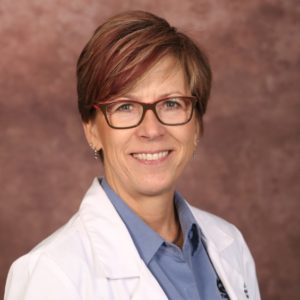 We perform repetitive motions throughout the day. Most of these motions are tolerable, while others might cause discomfort. Some repetitive motions catch up with us after years of overusing the same muscles or tendons. When we feel aches, pain, muscle tension and/or fatigue, it’s our body letting us know we are doing too much. It’s important to listen to our bodies to help prevent damage.
We perform repetitive motions throughout the day. Most of these motions are tolerable, while others might cause discomfort. Some repetitive motions catch up with us after years of overusing the same muscles or tendons. When we feel aches, pain, muscle tension and/or fatigue, it’s our body letting us know we are doing too much. It’s important to listen to our bodies to help prevent damage.
Some examples of what happens when we overuse a muscle include:
- Tennis elbow – pain on the outside of your elbow
- Golfer’s elbow – pain on the inside of your elbow
- Rotator cuff tears
- Hand pain – an early sign of arthritis
- Thumb pain – a symptom of arthritis or tendonitis
Even if the motion is not heavy or forceful in nature, it can still cause pain if you’re overusing a muscle. Sitting at a computer typing and using a mouse or texting, for example are light motions, but they are repetitive in nature, which can lead to inflammation. Playing tennis or golf, shoveling, digging, painting and using hand tools are examples of heavier, more forceful tasks. To help prevent injury, limit the amount of time you spend doing repetitive tasks, take frequent short breaks to stretch and/or get up and move around.
Symptoms may range from dull, achy pain to sharp intense pain. They may occur gradually over time or the pain may be acute − brought on by sudden movement or trauma. Some easy techniques to manage the pain include using ice immediately after onset to reduce pain and inflammation. If symptoms persist, it may be appropriate to switch to heat after several days, or a combination of both. Both of these techniques promote blood flow and circulation to assist with healing. Resting and pacing yourself are also useful for healing. This can be challenging, especially when you are starting to feel better, but gradually resuming of the daily activity is very important for healing and preventing re-injury.
If the pain persists, EntireCare Rehab & Sports Medicine recommends you have an evaluation by a physical or occupational therapist. The therapist will complete a thorough evaluation and develop a treatment plan specific to your needs, which likely will include management of swelling, modalities to assist with pain management, hands-on techniques, exercise and a home-exercise program. QCBN
EntireCare Rehab & Sports Medicine experts and specialties
The therapists and specialists of Northern Arizona Healthcare’s EntireCare Rehab & Sports Medicine department have the education and hands-on experience required to provide comprehensive, individualized treatment plans and therapies.
Each specific type of therapy − occupational, physical, hand and speech − is considered a specialty, and plays an important role in the rehabilitation process. The EntireCare team functions as a cohesive unit, where all members share information and knowledge. The ultimate goal is the patient’s improvement and return to the highest possible functioning level. Choosing EntireCare means patients also have access to a myriad of additional services, such as advanced facilities, technology and equipment.
To make an appointment at one of EntireCare’s Flagstaff locations, call 928-773-2125.
- Flagstaff Medical Center: 1215 N. Beaver St. The outpatient therapy center includes a large exercise gym; private rooms for hand, wound, speech therapy, electrical stimulation and other treatments; an above-ground therapeutic pool; group exercise classes; and more.
- East Flagstaff: 7810 N. Hwy. 89, Ste. 280 (in the Elden Ridge Business Centre next to Subway). Full-time physical therapists provide comprehensive treatment options in a state-of-the-art facility. The clinic offers both private treatment rooms and a gym-like area for patients to work one-on-one with therapists.
Mickie Toutant, O.T., is an occupational therapist with the EntireCare Rehab & Sports Medicine department located at Flagstaff Medical Center. She specializes in hand therapy and treatment of other problems with upper extremities, such as fractures, arthritis and traumatic and repetitive motion injuries. She also works with patients who have neurological conditions, such as head injury, stroke and post-concussion syndrome, as well as those who have survived cancer. She earned a bachelor’s degree from College of St. Catherine in St. Paul, Minn. She is certified as an occupational therapist by the American Occupational Therapy Association and has additional certifications in neurological developmental technique, or NDT; Tai Chi; Graston technique; and dry needling.
Northern Arizona Healthcare is creating healthier communities by providing wellness, prevention and medical care through Flagstaff Medical Center, Verde Valley Medical Center, Verde Valley Medical Center – Sedona Campus, Northern Arizona Healthcare – Camp Verde Campus, Northern Arizona Healthcare Medical Group – Flagstaff, Verde Valley Medical Clinic, the Cancer Centers of Northern Arizona Healthcare, Northern Arizona Healthcare Orthopedic Surgery Center, EntireCare Rehab & Sports Medicine, the Bariatric Surgical Weight Loss Clinic, the Heart & Vascular Center of Northern Arizona – Cottonwood, the Sleep Center, Guardian Air and Guardian Medical Transport. We also provide comprehensive imaging, laboratory and pharmacy services throughout the region. Many of the services we provide receive major funding through the NAH Foundation, including Fit Kids of Arizona, The Taylor House and Valley View Care.
For more information on Northern Arizona Healthcare programs and services, visit NAHealth.com. “Like” NAH at Facebook.com/NorthernArizonaHealthcare.
By Mickie Toutant, O.T.





